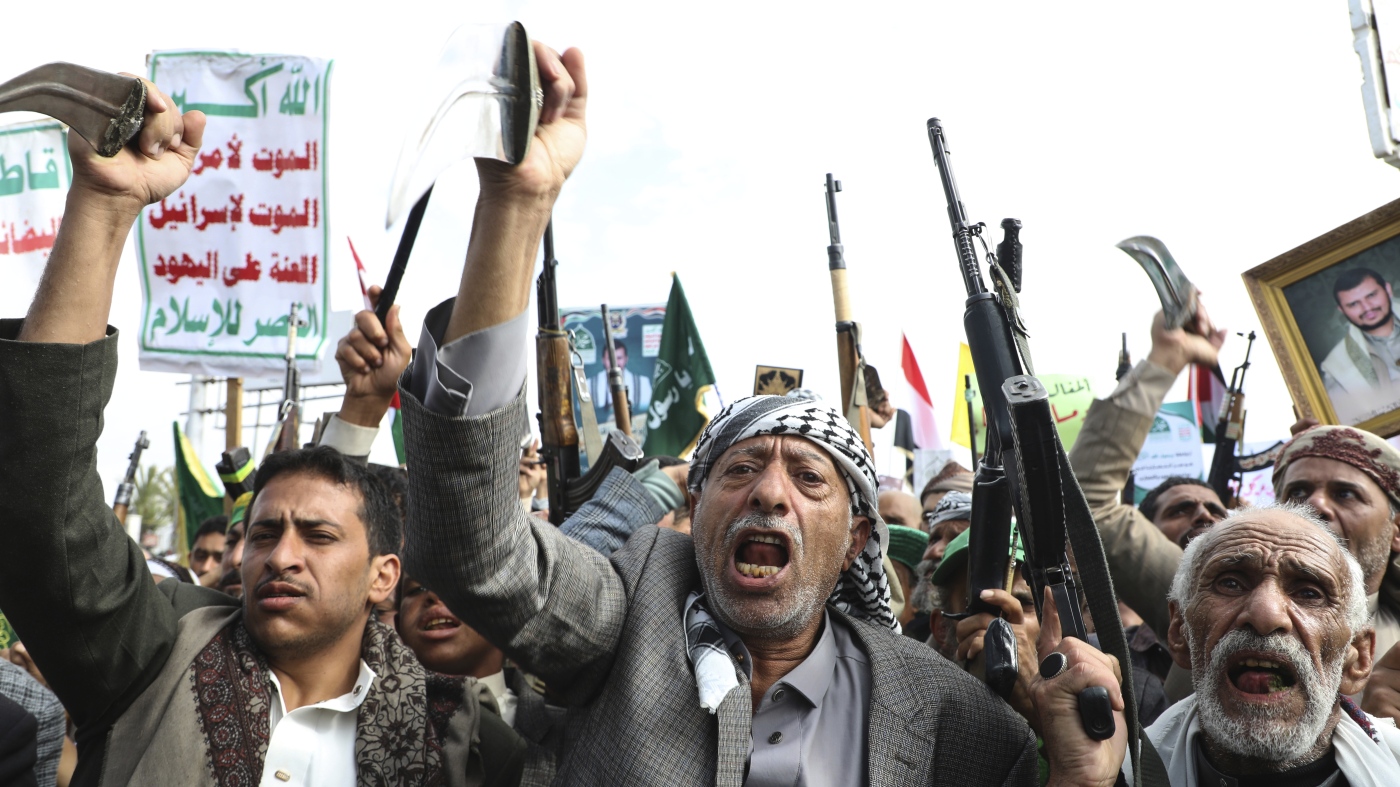Israeli Airstrike Kills Houthi Prime Minister Ahmed al-Rahawi in Sanaa, Yemen
Sanaa, Yemen – August 30, 2025 – Yemen’s Iran-backed Houthi rebels have confirmed that an Israeli airstrike on Thursday killed Ahmed al-Rahawi, the prime minister of their rebel-controlled government, along with several other ministers, marking a significant escalation in Israel’s campaign against the group. The strike targeted a government workshop in Sanaa, the capital under Houthi control since 2014, and represents the most senior Houthi official eliminated to date in the ongoing conflict. While Israel has not officially confirmed the deaths, IDF sources indicate the operation was aimed at high-level military and political targets, including the Houthi defense minister and chief of staff, amid the group’s repeated missile and drone attacks on Israel in solidarity with Palestinians in Gaza.
The Houthi statement, released via their official media channels, described al-Rahawi as a “mujahid” (fighter) and announced the martyrdom of him and an unspecified number of ministers during a routine evaluation meeting. “We declare the martyrdom of the fighter Ahmed Ghalib al-Rahawi, Prime Minister in the Government of Change and Construction, along with a number of his fellow ministers,” it read, adding that others were wounded. Houthi President Mahdi al-Mashat has appointed Mohammed Ahmed Ahmed Muftah, the first deputy prime minister, as acting prime minister. Yemeni opposition outlets and Israeli media reported additional casualties, including the defense minister Muhammad Nasser al-Attafi and chief of staff Muhammad Abd Al-Karim al-Ghamari, though confirmation remains pending.
The Strike: Precision Targeting Amid Escalation
The Israeli Defense Forces (IDF) confirmed conducting “precise strikes” on a “Houthi terrorist regime military target” in Sanaa on August 28, involving over 10 fighter jets and targeting infrastructure linked to the group’s operations. The attack coincided with a televised speech by Houthi leader Abdul-Malik al-Houthi, suggesting Israel monitored the event for optimal timing. Defense Minister Israel Katz, who approved the operation alongside Prime Minister Benjamin Netanyahu and IDF Chief of Staff Eyal Zamir, stated: “As we warned the Houthis in Yemen, after the Plague of Darkness comes the Plague of the Firstborn. Whoever raises a hand against Israel—his hand will be cut off.” This biblical reference underscores Israel’s vow to intensify actions against Iranian-backed proxies.
The strikes were a direct response to recent Houthi aggression, including a missile launch on August 27 and drone interceptions on August 28. Since November 2023, the Houthis have fired over 200 projectiles at Israel and targeted Red Sea shipping, disrupting global trade valued at $1 trillion annually. In retaliation, Israel and a U.S.-led coalition have conducted dozens of airstrikes on Houthi-held areas, including Sanaa and Hodeida, knocking out the capital’s airport in May 2025. Earlier strikes on August 24 killed at least 10 and wounded 102, according to Houthi health officials.
Al-Rahawi, 52, from southern Abyan province, was appointed prime minister in August 2024 after aligning with the Houthis during Yemen’s civil war. A former ally of ousted President Ali Abdullah Saleh, he played a key role in the group’s governance amid the ongoing conflict that has devastated Yemen, creating one of the world’s worst humanitarian crises with over 377,000 deaths and 4.5 million displaced.
Broader Regional Implications
This assassination is part of Israel’s expanding operations against Iran’s “axis of resistance,” following the killings of Hamas leader Ismail Haniyeh in Tehran (July 2024), Hezbollah chief Hassan Nasrallah in Beirut (September 2024), and Hamas co-founder Yahya Sinwar in Gaza (October 2024). Analysts suggest it could disrupt Houthi leadership but is unlikely to halt their attacks, as the group has vowed escalation: “Our military operations supporting Gaza won’t stop… until the aggression is stopped and the siege is lifted,” stated Houthi spokesperson Nasruddin Amer.
The U.S., under President Donald Trump, announced a May 2025 deal to end airstrikes in exchange for halting shipping attacks, but the Houthis clarified it did not apply to Israel-linked targets. Recent U.S. involvement has waned, leaving Israel to lead the Yemen campaign. Iran’s Supreme Leader Ayatollah Ali Khamenei praised Houthi resilience, while the UN Security Council has scheduled an emergency meeting on the strikes.
Houthi media reported no immediate retaliation plans, but experts warn of potential Red Sea disruptions. On X, reactions range from Houthi supporters vowing revenge—”Israel’s aggression will not go unpunished”—to Israeli accounts celebrating the “successful operation.” As Yemen’s civil war rages, with Saudi-backed forces unable to dislodge the Houthis, this strike could prolong instability, exacerbating the humanitarian toll on civilians.
Sources: NPR, Newsweek, The Times of Israel, Al Jazeera, NBC News, PBS News, Euronews, The New York Times, CNN, Anadolu Agency, X Posts (various users including @ME_Observer_, @IsraelWarRoom, @MalcangiSarah)
